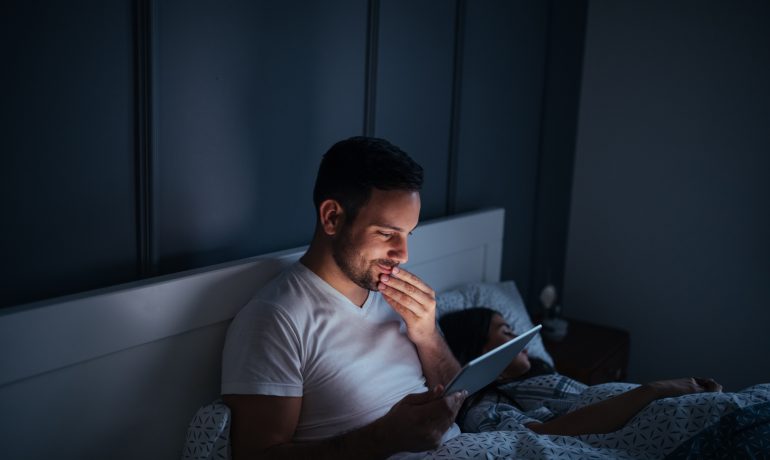Your body’s systems run on a type of 24-hour internal biological clock. This is known as circadian rhythm. A study has revealed increased health risks for people who regularly stay up late and get up late or night owls.
Your body uses external cues, such as sunrise and sunset, to regulate many of its internal processes. Circadian rhythms are intricately involved in sleep patterns, too. In fact, it’s one of the main factors involved in the phenomenon known as jet lag. Circadian rhythms originate mostly in a part of the brain known as the hypothalamus.
As a folk remedy to help you fall asleep, you have probably heard of counting imaginary sheep in your head. When you were a toddler, perhaps your parents once told you about bedtime visits from a gentle, mythical creature known as the Sandman, who is supposed to usher children into the realm of blissful sleep.
The Sandman isn’t real, but here are just a few fun, real facts about sleep:
- Some people dream only in black and white.
- Lack of sleep can contribute to obesity. This is because sleep deprivation causes levels of leptin, the body’s natural appetite suppressant hormone, to fall, possibly dropping below effective levels.
- The body never adjusts to the changing patterns of shift work.
- Animals dream, but it’s not known if animals experience REM sleep as people do.
Dolphins sleep by resting one half, or hemisphere, of their brains at a time. The other hemisphere remains awake! When a dolphin’s left brain hemisphere is asleep, its right eye will be closed during this time. The left eye remains open to guide the animal and prevent attack by marauding predators. The hemispheres then switch places, allowing each one relatively brief, but adequate, rest.
Chronotypes
A chronotype is simply a fancy term for the time of day that you would consider yourself to be the most active. Chronobiology is a term that’s a little more encompassing. You would probably think of yourself as either a mostly day person or a mostly night person. That’s your chronobiology.
Did you know that the time you normally like to go to sleep can have a stunning impact on your health? This factor can even partially determine your longevity. In a chronotype study involving nearly half a million adults aged 38 to 73 years, night owls were compared to early birds for any differences in their health and life expectancy.
The study found strong correlations between higher levels of psychological disorders, heart disease and diabetes among the study participants who were night owls and late risers.
Each participant in the study was required to self-identify their own personal chronotype.
They had four basic choices:
- A morning type, without any doubt
- Moderate morning person
- Definitely an evening kind of person
- Moderate evening person; more of an evening than a morning person
Participants self-identified their sex and race. Staff took height and weight measurements and placed each person into an age-range group.
Participants revealed how many hours of sleep they received on an average night.
The participants were carefully monitored for over six years.
The results of the study were clear. There was definitely a higher incidence of both death and disease, particularly heart disease, among those participants who had identified themselves as being strongly active in the evening.
Complete results were published in the Chronobiology International journal. They further revealed that people who habitually sleep late have a 10% higher chance of an early death. They’re also more likely to be physically or emotionally ill. Night owls are 90% more likely to be emotionally ill and 30% more likely to have diabetes and GI diseases.
Reasons
Your genes play a fairly strong, but certainly not unilateral, role in your circadian rhythm tendencies. If you prefer to stay up late and get up late, then most likely you have a number of family members who are the same.
The results of this study may make you want to at least try to modify your habits. It’s never too late to make positive changes to improve your health and quality of life. At least as far as chronobiology is concerned, lifestyle changes can definitely help you to triumph over some potentially detrimental genetic tendencies.
Other Factors
Kristen Knutson, associate professor of neurology at Northwestern University Feinberg School of Medicine, points out that the increased risk of death may have other reasons. For example, she states that eating late-night unhealthy snacks, stress and lack of adequate sleep could definitely be contributing factors to disease and early death, at least in some cases.
Professor Knutson advises that you keep to a regular bedtime. She also suggests that you get exposure to light earlier in the day, rather than later. For example, take your morning coffee cup outside with you and get some sunlight. Try to do more of your activities earlier in the day, too.
Conclusion
Don’t panic just because you can rattle off the after-midnight television line-up without a single hesitation. Eat right, get enough exercise and keep to a regular schedule as much as you can. A late night here and there isn’t going to do you in. Use common sense, and also use the information we have presented here today to help you make informed decisions about your health. It’s really all up to you.


